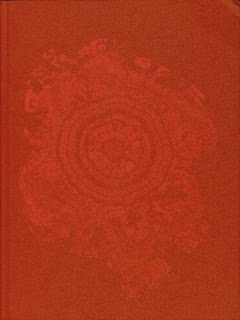I have a fascination with dendrochronology or tree-ring dating. I really do not care much for learning about the science and deciphering what each respective ring means, I am more enamored with the idea that it can be done. By dissecting a living or once living organism, the trained eye can readily deduce what the life or environment of that organism was like. Human organs, hair, skin and even fossilized plaque can tell stories of what that person ate or how they died. Geological layers speak to the trained eye of volcano eruptions, violent swellings of massive amounts of water or astrological collisions. When we look at images, as with biological or geological matter, in or out of context, what do we see and what do they communicate? How is that seeing affected by our modern perceptions of contemporary life? What can the information on the surface of an object tell us?
Surface Series by Batia Suter uses found imagery-some I would assume to be vernacular, documentary, commercial, scientific, among other genres and sources - to collect and examine images with the theme of surface. Adorned with a section of a tree on the red cover, the book is produced in black & white with many images revealing the half-tone dots of their original publication, betraying the fact that the image has been appropriated from cheaply printed media (and adding another layer of interest and visual texture). They are decontextualized, sequenced like prose leading the reader through lines and positive and negative spaces. Suter's images bring up themes of the sacred through spirals and petroglyphs, man's use and misuse of the land with track marked fields and allude to the passage of time in the natural earth formations. Suter groups the images to create a narrative far removed from their original purpose.
Accompanying the book is a color insert displaying a panoramic view of
the exhibition of Suter's found imagery. Although the book is very much
smaller in scale than the exhibition originally designed as a
site-specific piece at Culturgest Porto in Lisbon, Portugal, the insert
shows the proportional difference between the exhibition images and the
reproductions in the book. This dialogue cannot truly be reproduced in
book form, but without its inclusion we could not make this comparison
and read both exhibition and book as two different pieces-the book being
a more economical way to distribute the images and ideas. The book
finishes with captions and copyright credits and a very heady essay "The
Prosody of the World: Batia Suter and Writing" by
philosophically-trained German curator Dieter Roelstaete. Roelstaete
draws connections between the appropriated art of Suter and the theories
of Jacques Derrida and Throdor Adorno. I do not venture to decipher the
text here, but I would note that he finishes by questioning our
obsession for experiencing found objects and the process of finding, the
"archaeological paradigm of digging, excavating and dusting off," as
art. The work of Suter has taken images from their utilitarian context
and its whole, placing them as art pieces to communicate an entirely new
message left open for our trained eyes do decipher.
Purchase a copy
here.













